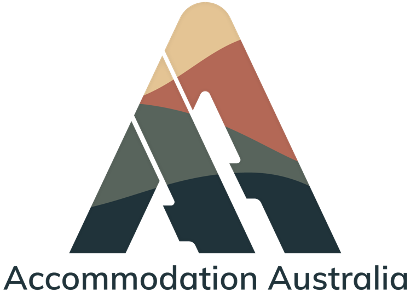Top 3 Federal Issues for AHA State & Territory Branches
Northern Territory
1. Training funding
Currently federal funding for training rewards certificate completion by employees or potential employees. However, more hospitality businesses are targeting specific skills training to improve workplace productivity and upskill staff. Ironically, it has been the reduction in government funding that has moved hospitality businesses to this skill based focus training.
2. Access to overseas workers
The NT will for the foreseeable future have a heavy reliance on overseas workers for skilled and unskilled work. Visa processing tends to be more complicated for skilled workers. The red tape and delay in processing are far too rigid in their processing and contribute to the red tape and delay in processing.
3. Penalty rates and employment flexibility
– the NT supports the National AHA application to vary the hospitality industry general award including the reduction of penalty rates and increasing flexibility to the award provisions.
Queensland
1. More flexible employment arrangements
The ‘traditional’ IR/ER system is designed for 9-5, Monday- Friday and doesn’t suit hospitality businesses that operate outside of this.
2. The cost and complexity of copyright licensing fees
The licensing system is complex and this is exacerbated by the existence of two ‘competing’ copyright collection societies.
3. Anti-money laundering and counter-terrorism financing regulations
The regulatory solution and impost on the hotel industry and small business in general is totally out of proportion to the identified threat of money laundering.
New South Wales
1. Penalty rates and workplace relations reform
The current penalty rates structure and part-time employment provisions in modern awards operate as a disincentive to offering employment and full service product offerings in a 24/7 tourism industry. We need a wr structure with flexibility that does not penalise hospitality industries operating outside of the 9-5.
2. Illegal offshore wagering
We welcome the Federal Government’s review of illegal offshore wagering. In terms of regulation and harm minimisation a level playing field does not exist between online gambling operators and australian hotels. Many online gambling sites are operating without restriction, are not contributing tax to the australian government and do not have consumer protection and harm minimisation measures in place.
3. Access to labour and training
A priority for the hotel industry is to implement a labour and training framework which balances access to overseas skilled workers with locally accessible and affordable training.
Australian Capital Territory
1. Penalty rates reform
The penalty rates system in Australia needs to be urgently reformed. Having a more flexible IR system will enable hospitality businesses to employ more staff and grow.
2. Fewer public holidays
The high cost of wages on public holidays serves as a major disincentive for hospitality businesses to open on these days.
3. Illegal accommodation
Illegal accommodation is an increasing issue facing hotels across Australia, especially with the rise of residential apartments being used for short-stay accommodation.
Victoria
Workplace relations, work place relations and workplace relations!
The cost impositions and lack of flexibility of the hospitality industry (general), particularly in regard to penalty rates on Sundays and Public Holidays, are as Martin Ferguson says costing Australia “jobs, jobs and jobs.” AHA National and the IR team have put quality submissions to the current review by FWC of the award and we are certainly looking for a reasonable outcome, particularly having regard to the recent report of the productivity commission into Australia’s workplace arrangements.
South Australia
1. Penalty rates in a 24/7 market place
The penalty rate system is now a disincentive for many operators to open or provide a full range of services. This has resulted in a loss of wages and reduced economic activity, meaning that the current system is job destroying.
2. Failure of ‘one size fits all’ modern awards
The industrial arrangements that suit a five star property in the heart of Sydney will have little relevance to the market and work requirements of a country pub, yet both are hamstrung by the absolute inflexibility of the IR structures.
3. Taxation
GST was promised to largely replace state based taxes and it didn’t, instead they are increasing!
Tasmania
1. Penalty rates and industrial reform
We need an Industrial Relations system that recognises the 24/7 nature of the hospitality industry and the reality that, if a business is not open due to excessive costs, it then impacts the tourism industry and local markets, as they are not being serviced and employees forfeit the opportunity to work.
2. Access to a skilled workforce
We have a massive shortage of chefs and hospitality managers in our state and it is only going to get worse as we continue to increase our tourism numbers. We need access to affordable training that meets the needs of every business and we must promote hospitality as a viable career choice.
3. Unregulated letting of properties
There needs to be a level playing field in relation to accommodation regulation if we are to continue to invest in our properties and provide increased employment opportunities.
Western Australia
1. Business taxation
Fringe benefit tax on entertainment and meals increases compliance costs for business and deters expenditure in the hospitality industry. A priority for tax reform is the reduction of FBT on staff business meals to stimulate economic activity and employment in the hospitality sector.
2. Penalty rates
A critical priority is the need for more flexible working arrangements and reforms of the remuneration structure for work performed on weekends and public holidays. Sunday work should attract the same rates as Saturday.
3. Regulation of the sharing economy
Model legislation is required to introduce proportionate regulation of the more than 35,000 illegal accommodation providers offering apartments and homes for short stays.

